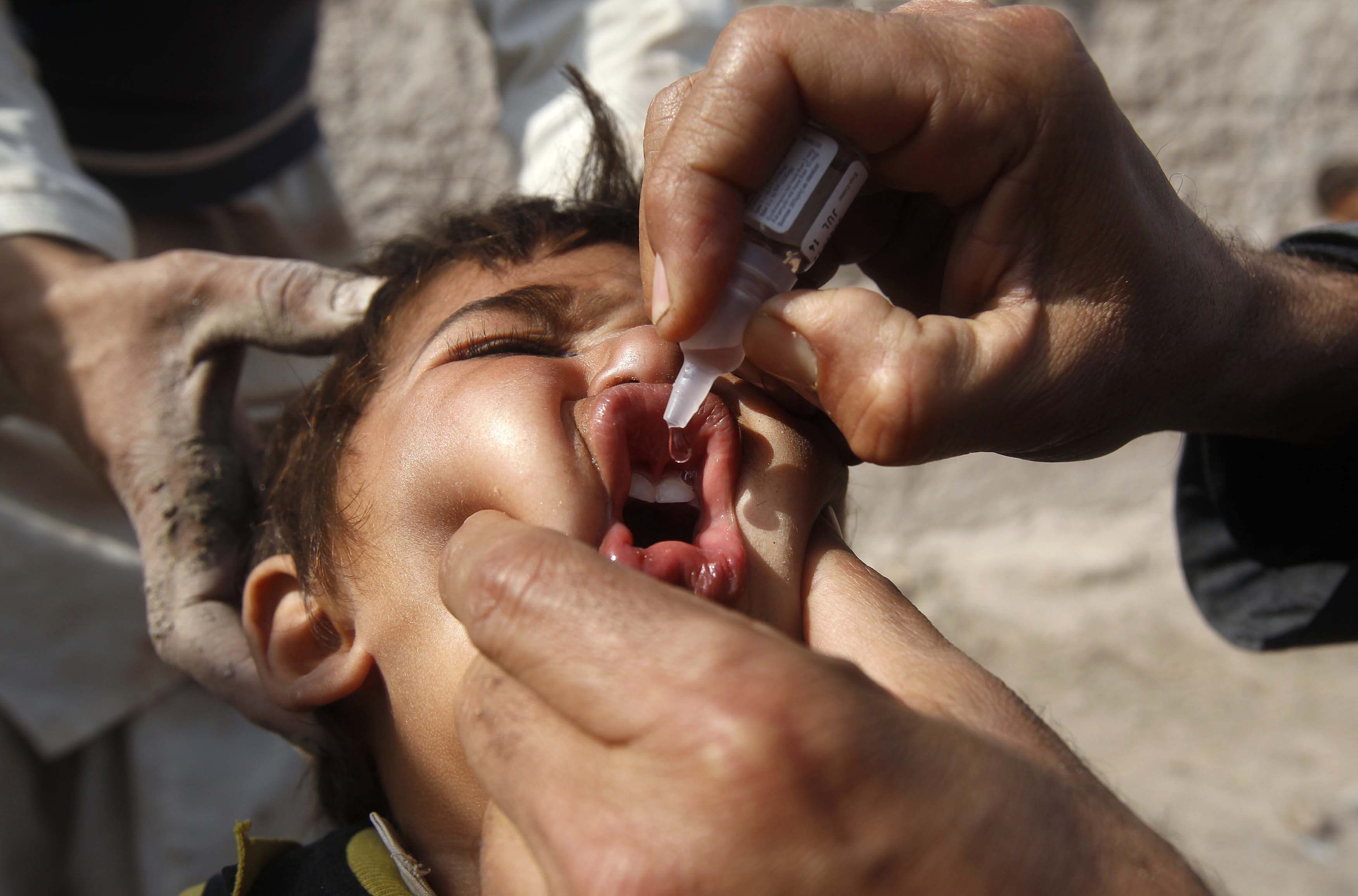Latest NEWS
- Aswat Masriya, the last word
- Roundup of Egypt's press headlines on March 15, 2017
- Roundup of Egypt's press headlines on March 14, 2017
- Former Egyptian President Hosni Mubarak to be released: lawyer
- Roundup of Egypt's press headlines on March 13, 2017
- Egypt's capital set to grow by half a million in 2017
- Egypt's wheat reserves to double with start of harvest -supply min
- Roundup of Egypt's press headlines on March 12, 2017
WHO, Islamic leaders summit to stop polio worker attacks

A child receives polio vaccination drops during an anti-polio campaign on the outskirts of Jalalabad February 11, 2013. REUTERS/ Parwiz
CANBERRA, March 1 (Reuters) - Top World Health Organisation officials and Islamic leaders will meet in Egypt next week in an effort to stop attacks on polio workers, which are hampering the eradication of the virus in some countries with large Muslim populations.
"Shooting health workers who are protecting kids from this crippling disease is against the Koran and everything Islam stands for," WHO's Assistant Director-General Bruce Aylward told Reuters in Canberra said on Friday.
Gunmen in Pakistan and Nigeria have killed more than 20 health workers in the past three months in a series of attacks linked to a backlash against the immunisation programme against the crippling virus.
"Muslim leaders have been great advocates of immunisation and generally the support has always been there. In Cairo, we are meeting senior Islamic leaders to get a sense of what we can do, and ask them how can you help us," said Aylward.
The WHO has successfully eliminated polio from most nations after a 25-year campaign, but the crippling condition remains endemic in three nations, Afghanistan, Pakistan and Nigeria, where some influential Muslim leaders have opposed the programme as a conspiracy of western medicine.
WHO remains on target to eradicate polio globally by 2018, Aylward said, despite a violent backlash from militant groups in Pakistan and Nigeria.
But there are also worrying signs of persistence, with the polio virus found in sewers in Cairo in January, with the type linked to the indigenous strain in Pakistan. Egypt has not had a case of polio since 2004.
Aylward said while the violence has forced the WHO to revise is approach to immunisations in both Pakistan and Nigeria.
"The goal is to put tools in the hands of the communities to immunise their own kids," Aylward said.
"The overall risks (of contracting polio) are getting smaller, because we are finally getting into some of these difficult places," he said.
Since 1988, the WHO has cut the number of global polio cases from 350,000 to just 225 in 2012, with India declared polio free in January 2012. (Reporting by James Grubel; Editing by Rob Taylor and Michael Perry)










